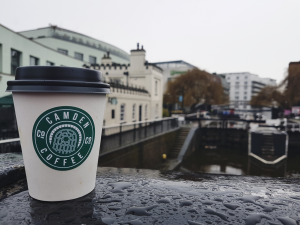How many times will your photographer, friends, and family be telling you to “Smile!” at you and your partner on your wedding day? Just like having the perfect dress, your smile is one thing that people will always remember on their Big Day. Therefore, it is only natural to want to ensure that those pearly whites look their absolute best.
Chipped, cracked, discoloured, and stained teeth are some of the most common issues we deal with prior to a bride’s wedding. Thankfully, there are plenty of things you can do throughout your engagement to ensure that near-perfect smile is possible.
1. Go for a Consultation
Depending on what you want to do to your teeth, it’s important to get the process started early, so you’re not scrambling right before the wedding. A consultation with us will not only consist of a thorough check-up, but it will include a thorough assessment of your overall oral health. You will be advised of any treatment you may need, not only to make your smile more aesthetically pleasing, but to improve and maintain your oral health.
A popular treatment is Orthodontics for straightening and realigning your teeth. Such treatment can take up to two years. However, new cosmetic solutions, such as Six Month Smiles, can significantly reduce this time by simply straightening those teeth that are visible.
Touch base with one of our cosmetic dentists early on and see what your options are.
2. Keep up your Oral Hygiene
As you embark on a teeth whitening treatment, it’s a good idea to first have your teeth professionally cleaned, that way surface stains can be removed first. This will also help you see what, exactly, you need to do professionally and what you can take care of at home.
3. Start whitening your teeth
Don’t leave whitening until the last minute! The colour of your teeth, in our opinion, is the most important thing that one can concentrate on, and we think it’s extremely important to prepare in advance.
Although you can get immediate results with an in-surgery whitening session, you may want to top-up your results further at home white the ‘home whitening kit’, depending on your desired results. It’s also important not to try to cram it in as, for example, accidental exposure to the gum tissue can cause gingival irritation.
4. Maintain your oral health and habits at home
At Sonria, we love educating our patients about oral health and how they can ensure they keep up the professional clean they leave the practice with. There’s a lot to think about in the months leading up to your wedding, but treating your teeth the right way should be a priority.
5. Chew more sugar-free gum
Chewing sugar-free gum appears to have many benefits.
Firstly, chewing sugar-free gum increases saliva production, which helps keep teeth cleaner and brighter without adding tons of effort to your normal routine. It has also been shown that the increase of the flow of saliva can strengthen the teeth, thereby reducing tooth decay. Clinical studies have shown that chewing sugarless gum for 20 minutes following meals can help prevent tooth decay. If you don’t believe us, check out the American Dental Association for more information!
Secondly, sugar free gum can reduce tooth sensitivity caused by in-office teeth whitening. Researchers pinpointed the increase in saliva flow from the act of chewing as a likely cause of this benefit. You can read more about this study here.
6. Steer clear of coffee, tea, red wine and other dark and staining drinks
If you absolutely must drink stain-creating substances like berry smoothies, cola, and cranberry juice, do it through a straw to limit direct contact with your teeth. Further to this, if you MUST drink or eat them, don’t swish! Please swish your mouth with water after. More information on staining of teeth and staining can be found on our article.




